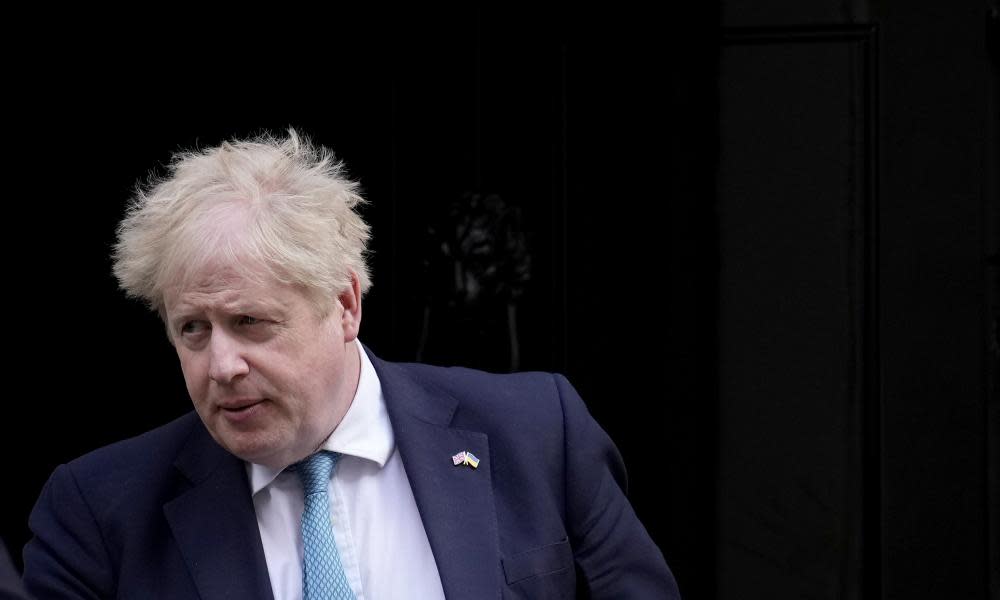The Guardian view on the dog days of Boris Johnson’s premiership: crises, which crises?

The sweltering summer continues to deliver ominous headlines, all pointing to the perfect storm that seems certain to break in the autumn. A new study from York University predicts that, by January 2023, more than half of UK households could be in fuel poverty, spending over 10% of net income on energy costs. The health secretary, Stephen Barclay, admits that the NHS may be unable to cope with a likely Covid wave, seasonal flu and the health impact of the cost of living crisis. Charities, which successive Conservative governments have relied on to prop up one of the meanest social safety nets in Europe, are struggling to meet soaring demand for basics as their own finances are hit by the economic squeeze.
Against this sobering backdrop, the ongoing Tory leadership race has become a darkly surreal distraction; a private affair which, increasingly, insults the intelligence of the country at large. As they seek to peddle old-time religion to Conservative party members, both Liz Truss and Rishi Sunak have deployed vintage Thatcherite dog-whistles rather than offer proper reassurance to those in need of it. Confronted with the reality that the budgets of millions of families risk being holed beneath the waterline, Ms Truss sounded utterly out of kilter with the times as she used an interview to reject the idea of additional “handouts”. During a hustings debate, Mr Sunak actually argued for a crackdown on welfare benefits, blaming the unemployed for driving up inflationary pressures in the labour market.
Both these aspirants to be prime minister know how inadequate such lazy rhetoric is, given the scale of the hardship that lies around the corner. On Monday, Mr Sunak correctly pointed out in the Sun that his rival’s proposed tax cuts would provide next to no help for the less well-off. But as they play to the gallery, crucial weeks are wasted in which vital planning and meaningful assistance could be put in place. Meanwhile, Boris Johnson appears to have washed his hands of a country facing stagflation and looming recession. On the prime minister’s first day back from holiday, Downing Street announced that there will be no emergency summer budget or new cost of living measures while he remains in office. Yet again this government, now effectively leaderless, demonstrates its disastrous talent for failing to grip and get ahead of a crisis. And, just as the pandemic exposed the damage done by years of underinvestment in the NHS, the coming economic crunch will be felt by the poorest as a blow upon a bruise after a decade of austerity.
It would be unfair to hold Mr Johnson, Mr Sunak or Ms Truss responsible for the nightmarish economic conjuncture – one which has its roots in the aftermath of Covid and the war in Ukraine (though Brexit has also contributed). But as latest projections suggest annual household energy bills may head towards £4,000 this winter – far outstripping earlier estimates – the lack of urgency is unforgivable. The National Institute of Economic and Social Research has recommended that universal credit payments should rise by £25 from October, when the energy price cap will rise again, to cushion the poorest against what is to come. As Gordon Brown argued at the weekend, to put such measures in place, action is required now. Instead, the country endures the spectacle of two callow contenders for the highest office evading the central issue of the day, while the prime minister chills out in the departure lounge.
Do you have an opinion on the issues raised in this article? If you would like to submit a letter of up to 300 words to be considered for publication, email it to us at guardian.letters@theguardian.com

 Yahoo Movies
Yahoo Movies 
